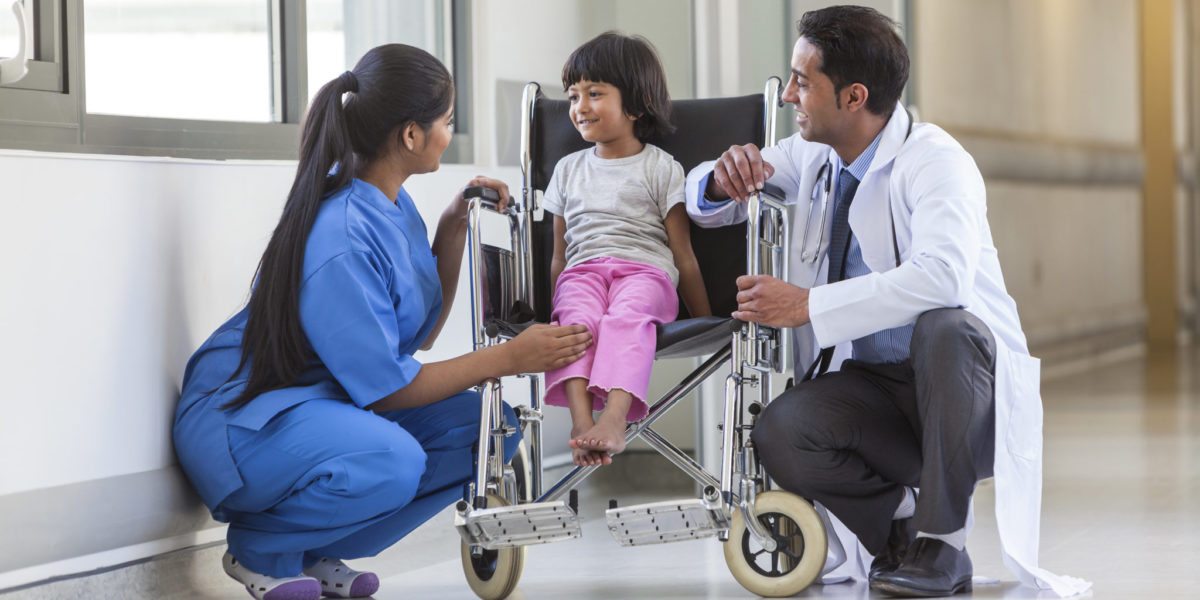Jump To:
- Therapeutic hypothermia
- Other treatments and therapies for HIE
- Non-medical means of managing HIE
- About the HIE Help Center and ABC Law Centers
At present, there is no true cure for hypoxic-ischemic encephalopathy (HIE). However, therapeutic hypothermia is the one treatment that can reduce the extent of permanent brain injury if given very shortly after birth or the oxygen-depriving incident. Most guidelines dictate that therapeutic hypothermia be given within six hours, although there may be some benefit up to 24 hours.
If the window of time to provide therapeutic hypothermia is missed, or if a child gets this treatment but still has lasting brain damage from HIE, there are a variety of additional treatments and therapies that can improve function and minimize symptoms.
Therapeutic hypothermia
Therapeutic hypothermia may also be referred to as hypothermia therapy, brain cooling, head cooling, whole-body cooling, or cooling therapy. When a child is diagnosed with HIE, care standards mandate that therapeutic hypothermia be performed within six hours of the oxygen deprivation, provided that they meet certain criteria for gestational age, weight, etc. (1). This can be accomplished through a selective cooling cap or whole body cooling. The baby is then cooled three days, after which the they are slowly re-warmed to a normal temperature. To learn more about therapeutic hypothermia, please visit our main page on this topic.
Please note that if medical professionals fail to provide therapeutic hypothermia to a baby that needs it, this is a form of medical malpractice. If this happened to your baby please contact us; the HIE Help Center is run by a malpractice law firm and we may be able to help.
Other treatments and therapies for HIE
 It is important that children with HIE receive early intervention in order to minimize health issues and maximize function. Exact treatment regimens will vary based on what parts of the brain were affected (and to what extent) by the oxygen deprivation. For example, a child with intellectual disabilities will require different types of intervention than one whose impairments are mainly or exclusively physical.
It is important that children with HIE receive early intervention in order to minimize health issues and maximize function. Exact treatment regimens will vary based on what parts of the brain were affected (and to what extent) by the oxygen deprivation. For example, a child with intellectual disabilities will require different types of intervention than one whose impairments are mainly or exclusively physical.
Children with HIE may develop a variety of associated conditions, such as cerebral palsy (CP) and epilepsy, which will also require treatment.
Please note that treatments should always be guided by the advice of a medical professional; this list is designed only to help raise awareness of the different possibilities available to children with HIE.
Your child’s treatment regimen may include regular visits to:*
Physical therapy
Physical therapy (PT) can help children develop motor skills. The goals of PT vary based on the type and severity of an individual’s disability. PT sessions may include things like learning to walk, improving strength, or increasing flexibility.
Occupational therapy
Occupational therapy (OT) is often confused with physical therapy but focuses more on helping children complete daily tasks and develop skills to maximize their independence. OTs work with clients on fine motor skills, visual perception skills, cognitive abilities, etc.
Speech/language pathologists
Many children with HIE have speech and language disorders that impact their ability to form words, speak clearly, or process language. Speech/language pathologists can help with these issues. Speech therapy can also be useful for children with swallowing problems such as dysphagia.
Behavioral and emotional therapy
Some children with HIE may have behavioral and emotional issues. Behavioral and emotional therapy may help them manage anger and other negative emotions, communicate more effectively, improve social skills, etc.
Sensory integration therapy
Sensory Integration therapy (SIT) is meant to help children manage sensory processing issues. SIT is often classified as a complementary and alternative medicine (CAM) therapy, as, while it is highly popular, it is not yet as well-established as other forms of therapy.
Massage therapy
Massage therapy is one treatment commonly used to help:
- Alleviate pain
- Relieve stress
- Relax tight muscles
- Improve circulation and digestion
- Rehabilitate bodily systems
It should be used alongside other therapies.
Recreational therapy
Children are more likely to enthusiastically participate in therapy if they are engaged and interested. Recreation therapy integrates fun activities (such as horseback riding, adaptive sports, or music) with therapeutic elements to help children both enjoy themselves and gain maximum physical, social, and emotional benefits.
Stem cell therapy
Stem cell therapy is still in clinical trials and not widely available in the United States. However, it holds promise as a treatment for HIE and a variety of other conditions. In this therapy, stem cells are injected into injured tissues in the hopes of repairing damage.
*Please keep in mind that this is not a comprehensive list of treatments and therapies for children with HIE and associated conditions. In order to get a better understanding of what can be done to maximize your child’s health and abilities, please consult with medical professionals.
Treatments for cerebral palsy
Because children with HIE often develop cerebral palsy, we have included some information on treatments specifically for CP. Click here to learn more about surgical interventions, and here to learn more about medications.
Non-medical means of managing HIE
While medical care and therapies are extremely important, complementary and alternative medicines can also help maximize their potential. Among other things, these include assistive and adaptive technologies, service animal assistance, and special education programs.
About HIE Help Center
The HIE Help Center is run by ABC Law Centers, a medical malpractice firm exclusively handling cases involving HIE and other birth injuries since 1997.
If you suspect your child’s HIE may have been caused by medical negligence, contact us to learn more about pursuing a case. We provide free legal consultations, during which we will inform you of your legal options and answer any questions you have. Moreover, you would pay nothing throughout the entire legal process unless we obtain a favorable settlement.
You are also welcome to reach out to us with inquiries that are not related to malpractice. We cannot provide individualized medical advice, but we’re happy to track down informational resources for you.
Sources
- The Academica Medical Center Patient Safety Organization (AMC PSO) Neonatal Encephalopathy Task Force. (2016). Therapeutic Hypothermia in Neonates: Recommendations of the Neonatal Encephalopathy Task Force[Pamphlet].



